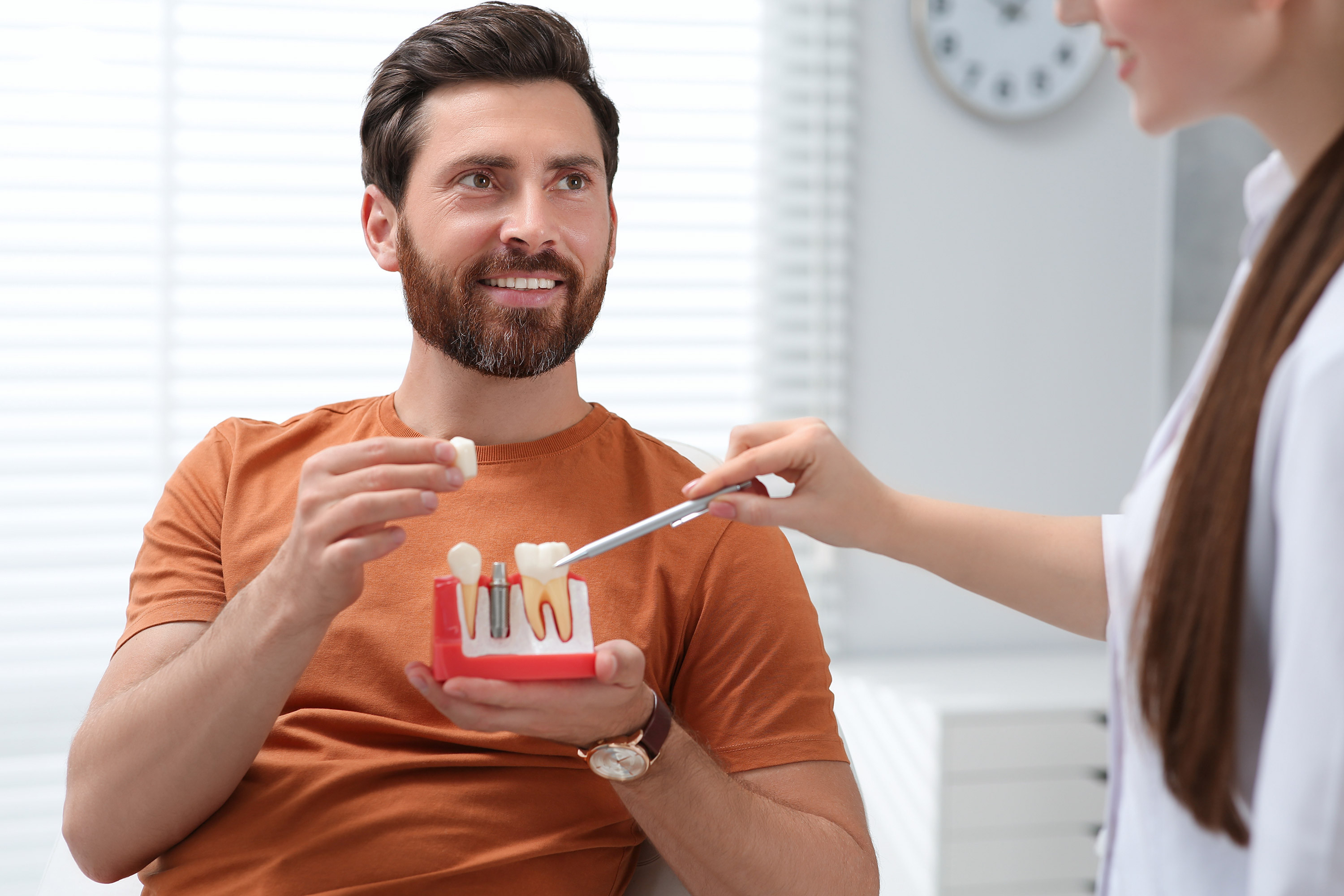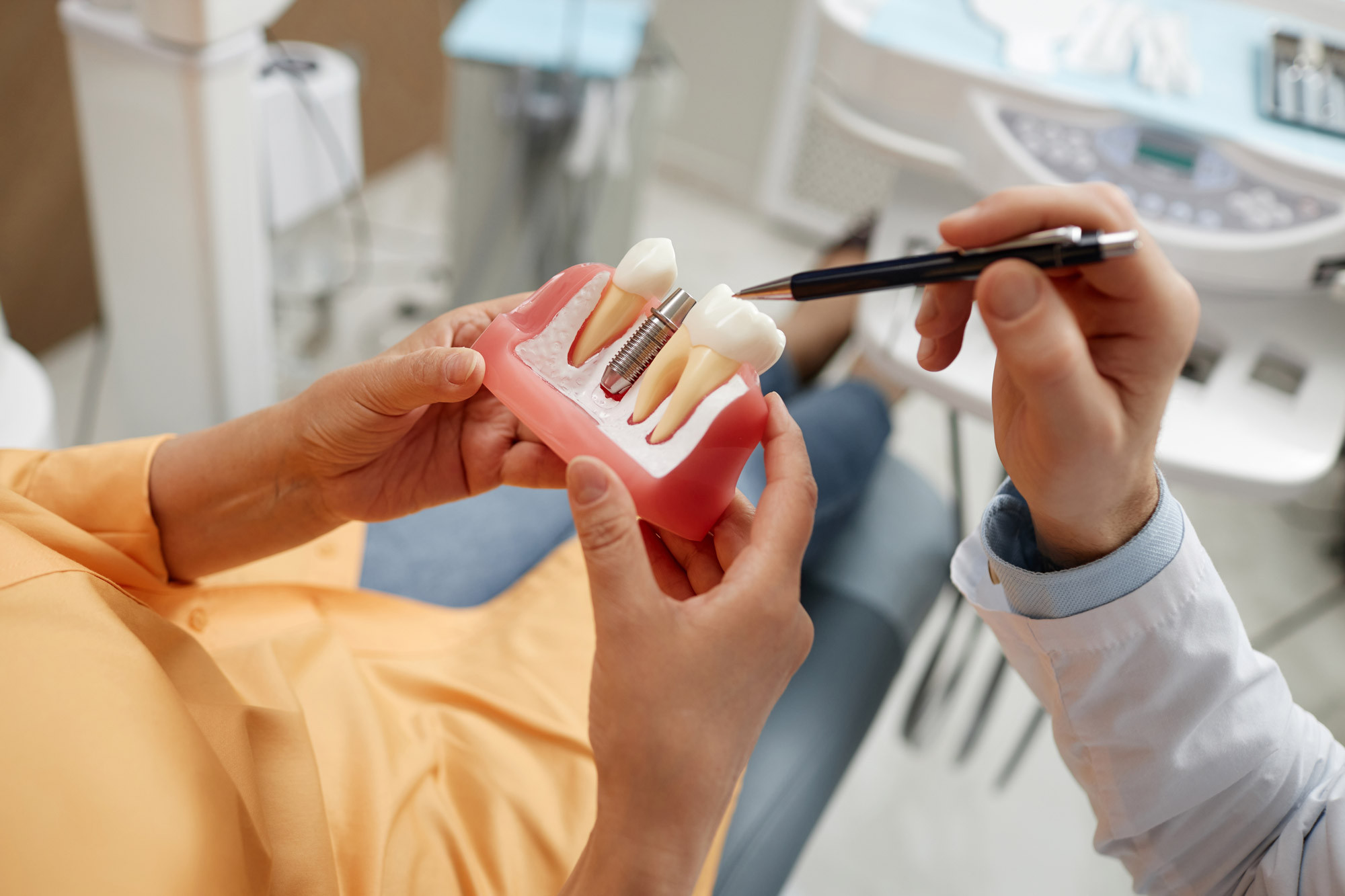
Restorative
Dental Implants
Dental implants are rapidly becoming the most popular, natural looking way of replacing missing teeth.
Dental Implants benefits
Stay looking younger
Jawbone integration provides support and prevents facial sagging
A permanent solution
Dental implants are a lifelong solution if looked after.
Secure dentures
Use dental implants to fix dentures into place and prevent slipping.
What are Dental Implants?

How it works
A word from our patients
We always want to make sure our patients have an exceptional experience and leave our practices with happy smiles. Here are some of our most recent success stories.
The service I received at Rodericks Dental Partners was amazing. They were there for me every step of the way and eased my worries.
FAQs
What exactly are dental implants?
A dental implant is a high-tech plug that replaces your tooth root. It’s surgically implanted into the jaw using state-of-the-art equipment and techniques, and is made from a super-strong, biocompatible material – usually titanium – to which your jaw bone will eventually bond. Once this has happened, a prosthetic tooth can be screwed onto the implant.
What are dental implants made of?
Typically dental implants are made from titanium, which is tolerated by the body and means your jawbone, in time, will fuse naturally with it.
Can anyone have implants?
Implants can only be considered for healthy mouths – so some patients may find that the process of getting implants will first require other dental work, such as bone grafting, gum surgery or orthodontics.
How does the dental implant procedure work?
Dental implant surgery is high-tech and minimally invasive. With the help of 3D scanning and a computer-guided dental laser, an implant can be placed so accurately that it involves the least possible trauma and therefore a swift recovery time. Once the implant has been placed in the jaw, you will need to wait a few weeks for the integration process to take place – this is where your natural bone tissue grows around the implant, securing it in place for life. Once integration has successfully completed, you’ll be able to return to your implant dentist for the final fitting of your new tooth.
Are implants possible for nervous patients?
Yes! Fear of the dentist is very common and quite understandable if you had a bad experience when you were younger, perhaps with a school dentist in the 1960s and 1970s. But implant surgery use such advanced methods that pain is no longer an issue. Digital technology makes the procedure extremely accurate and reduces the risk of discomfort and inflammation post-surgery.
Are implants safe?
Yes, dental implants are a well-established treatment, supported by over 30 years of clinical evidence and a 95% success rate or higher. Implants actually improve the health of your jaw by increasing blood flow to an area that would otherwise atrophy.
How long does the implant process take?
Dental implants mostly take around 9 months altogether, from the initial assessment to the fitting of the final crown.
How quickly can I go back to work after implants?
Most patients can return to work within one or two days of surgery.
